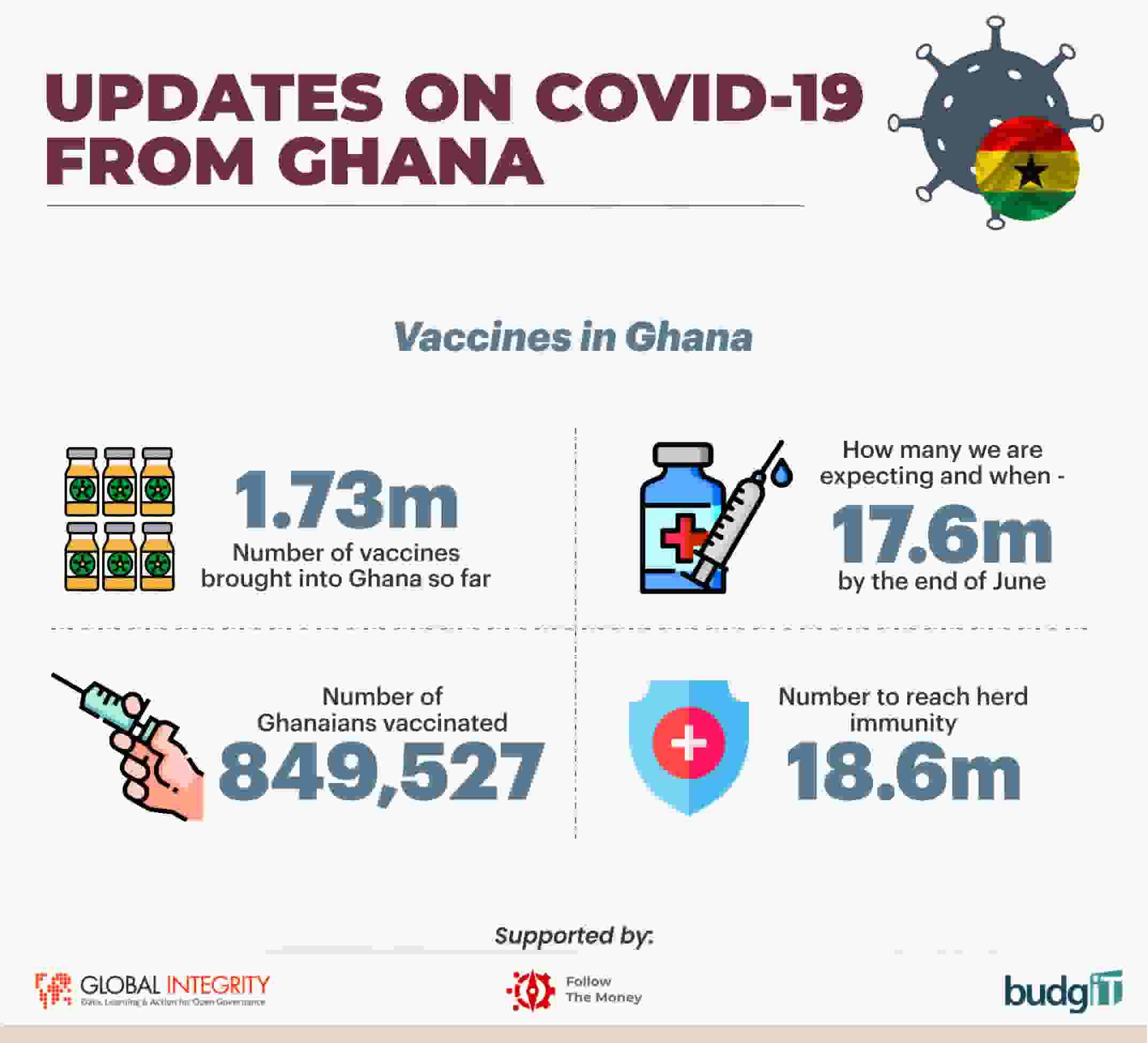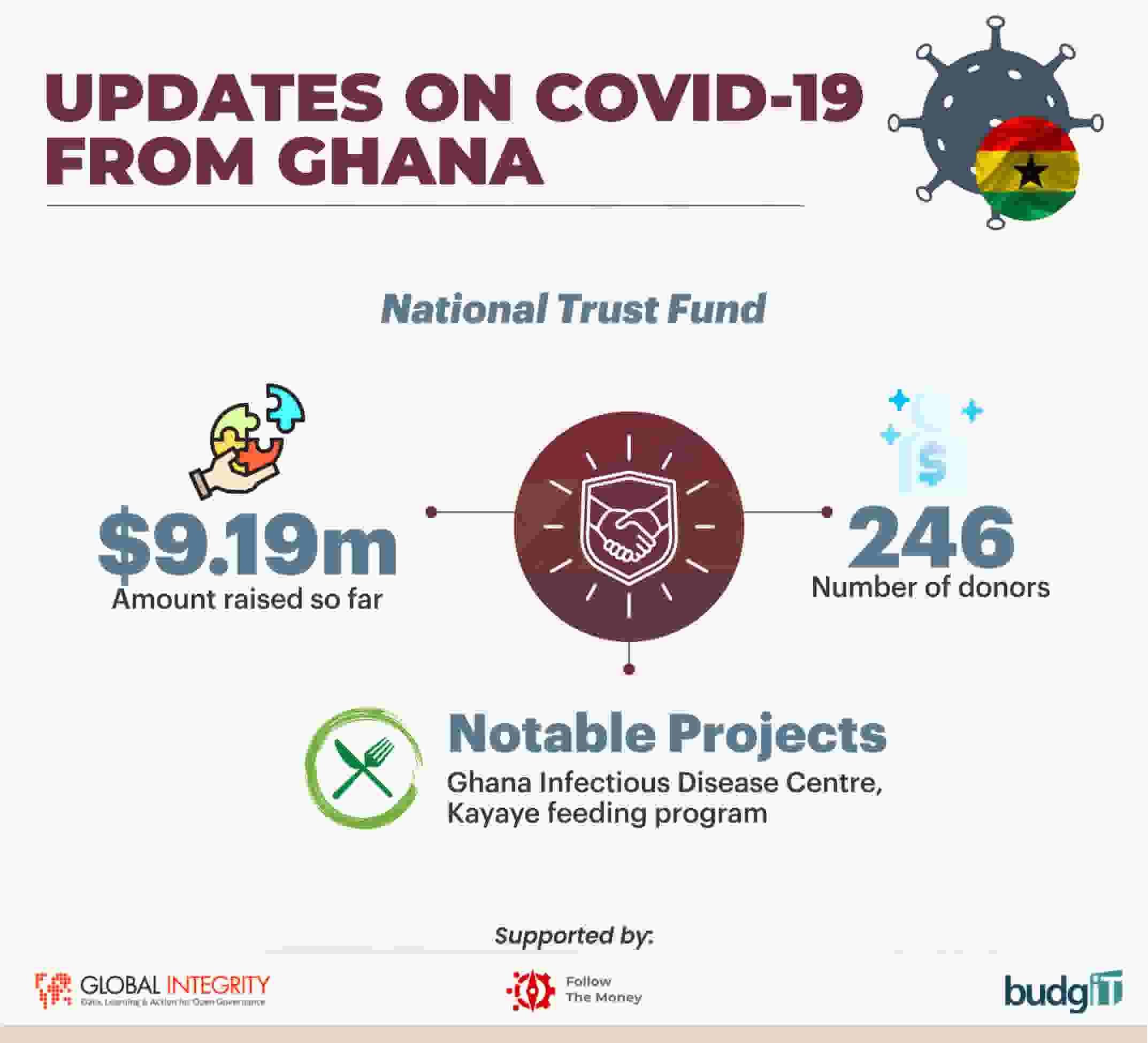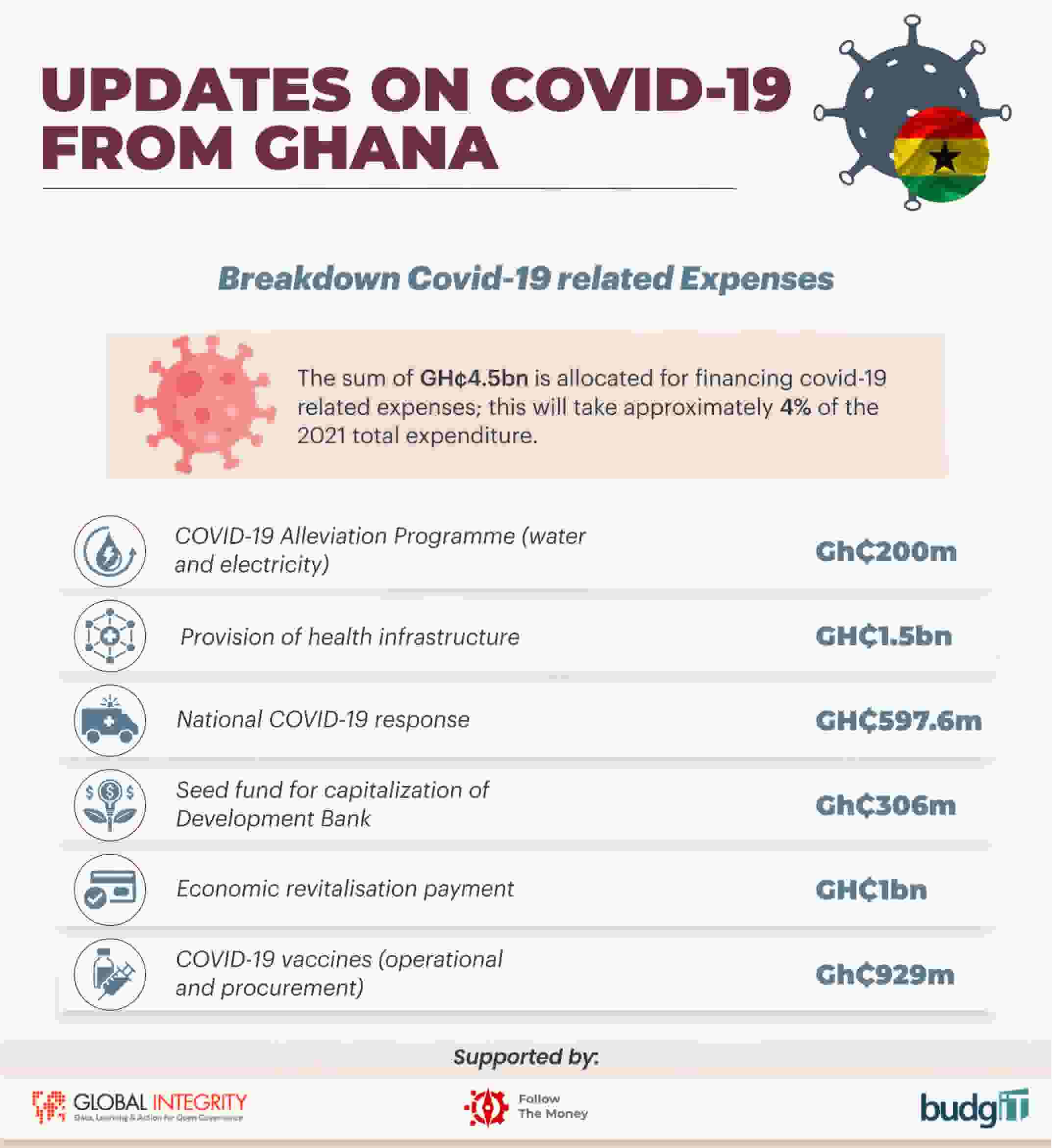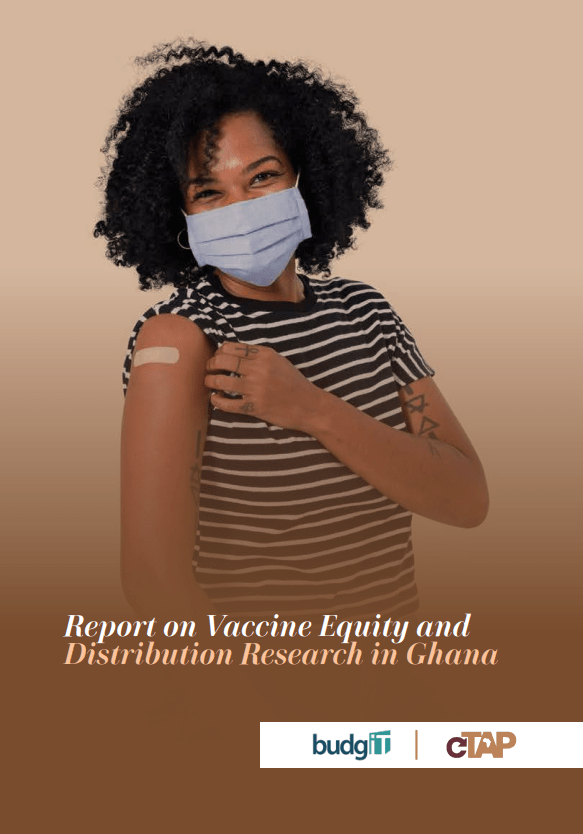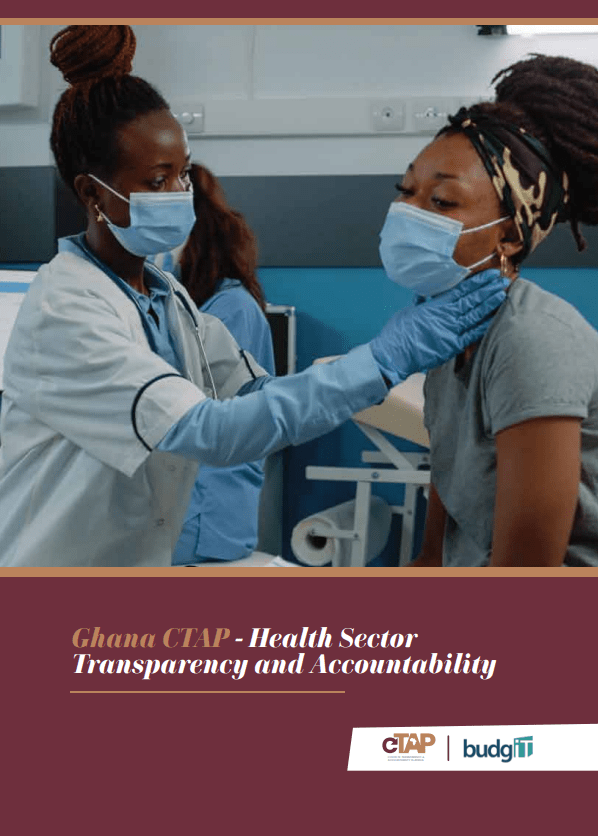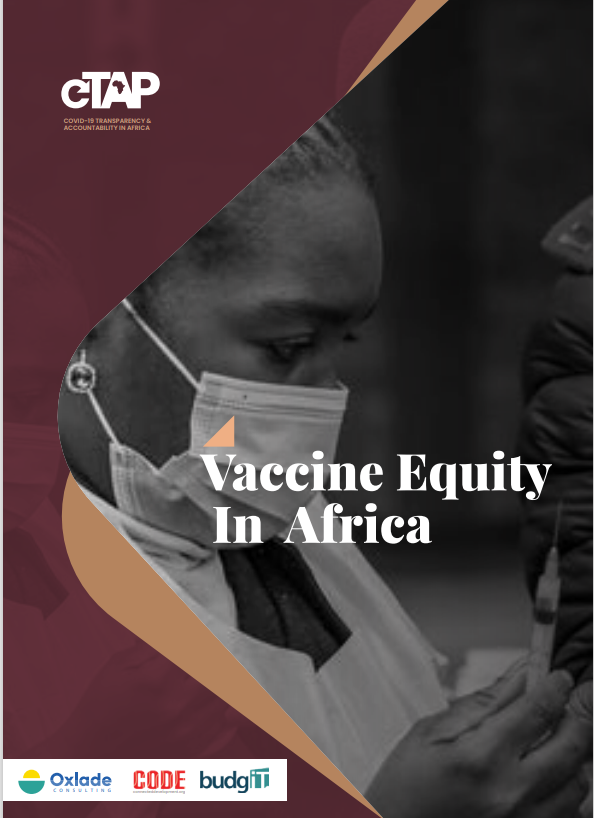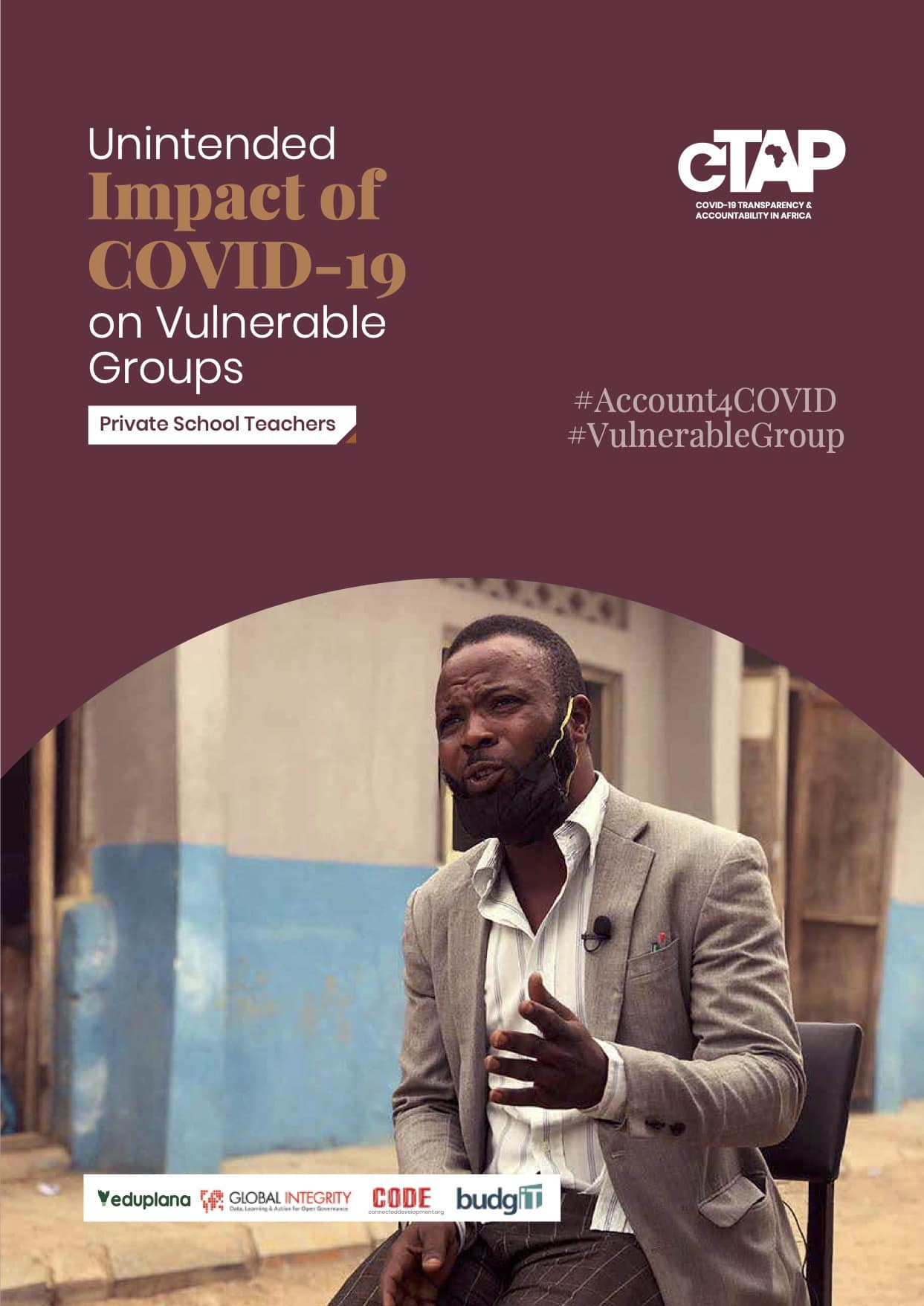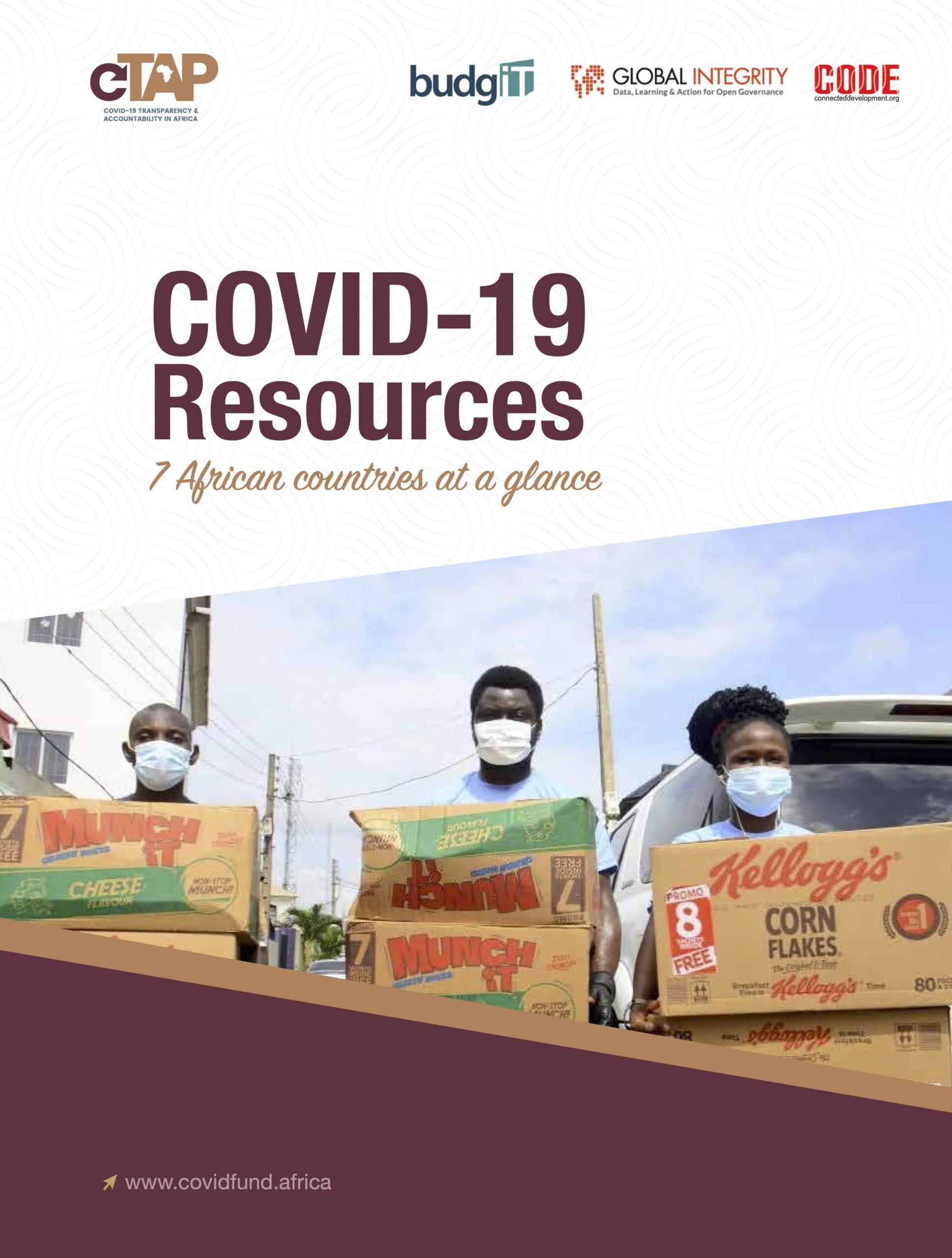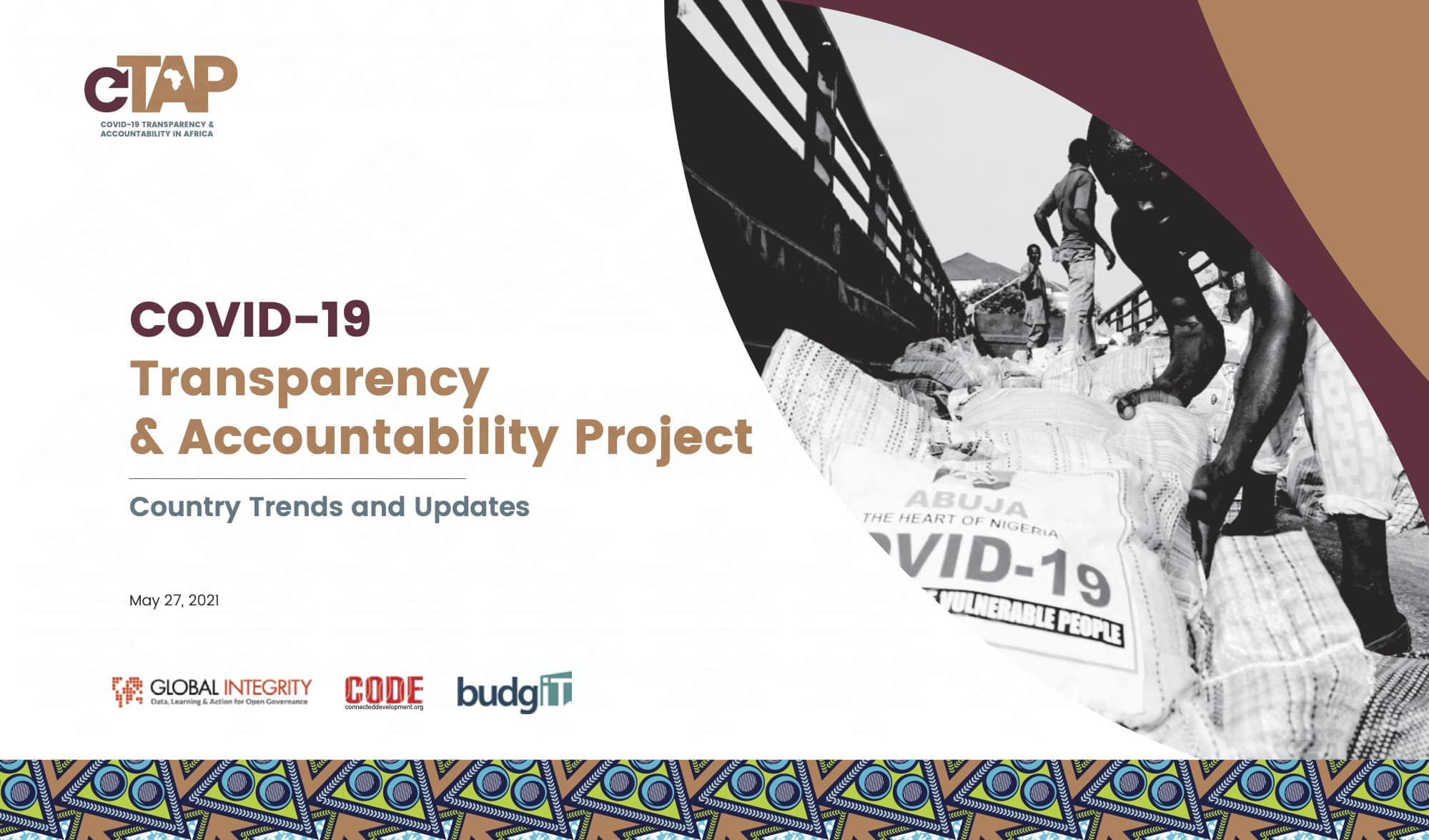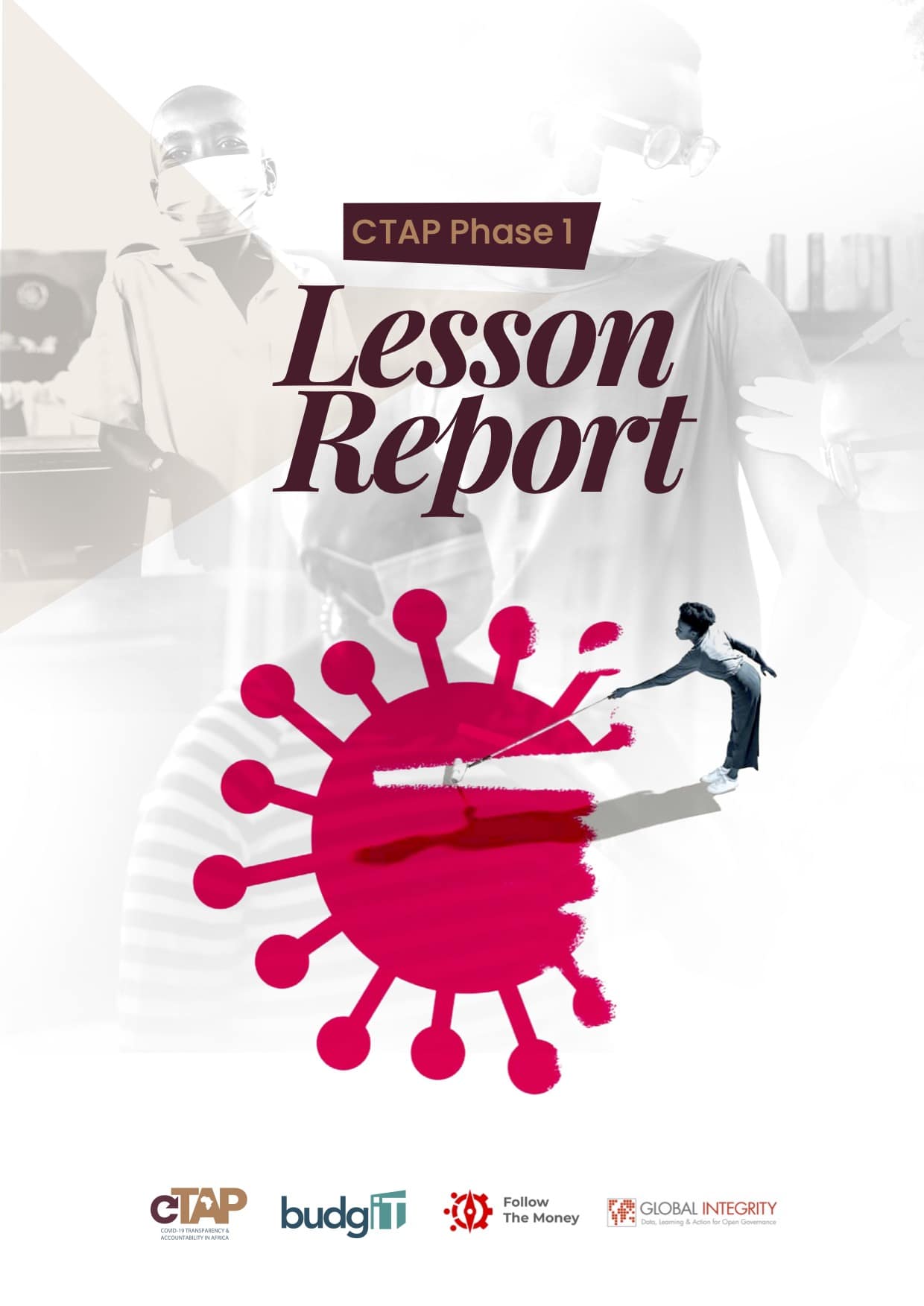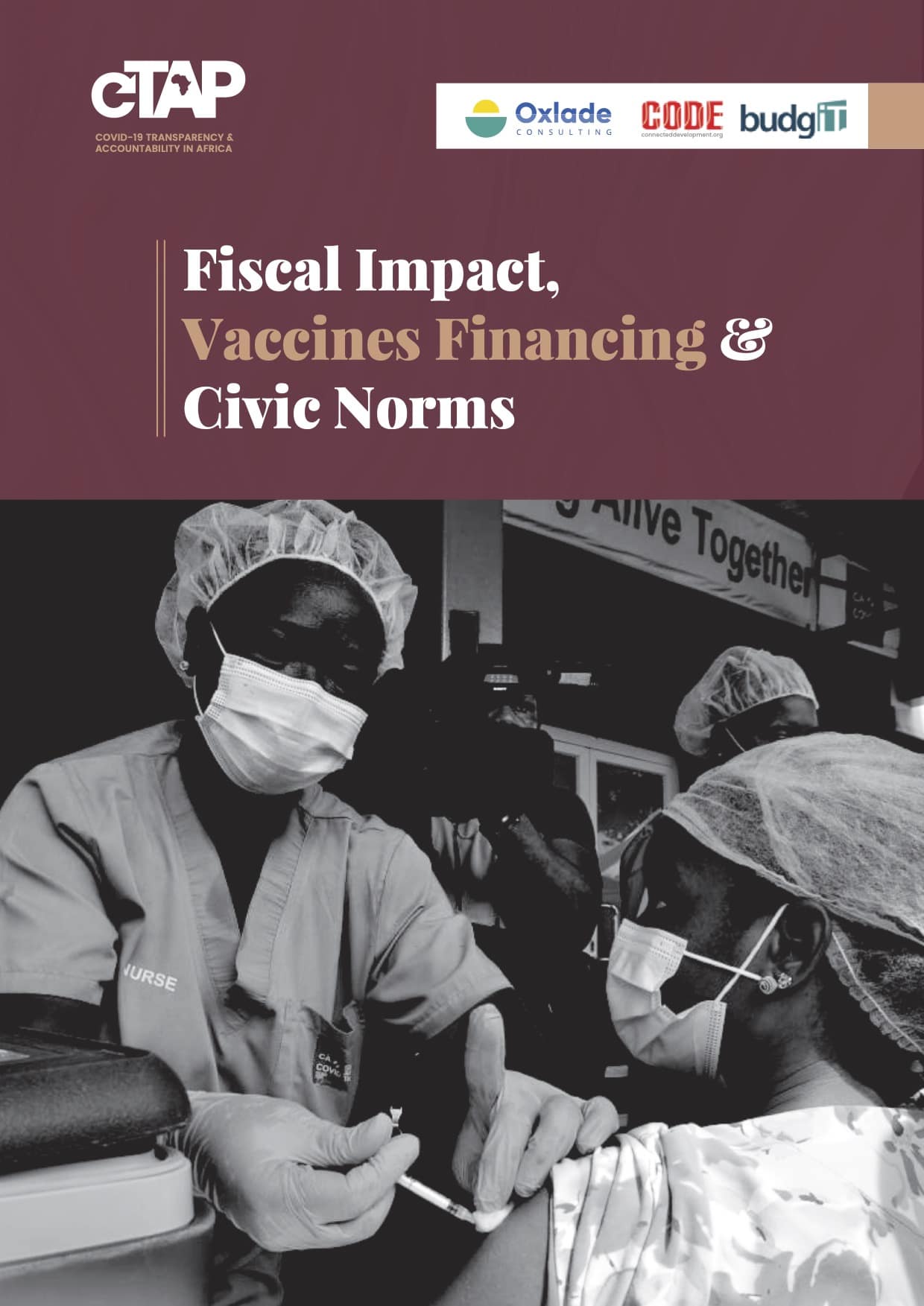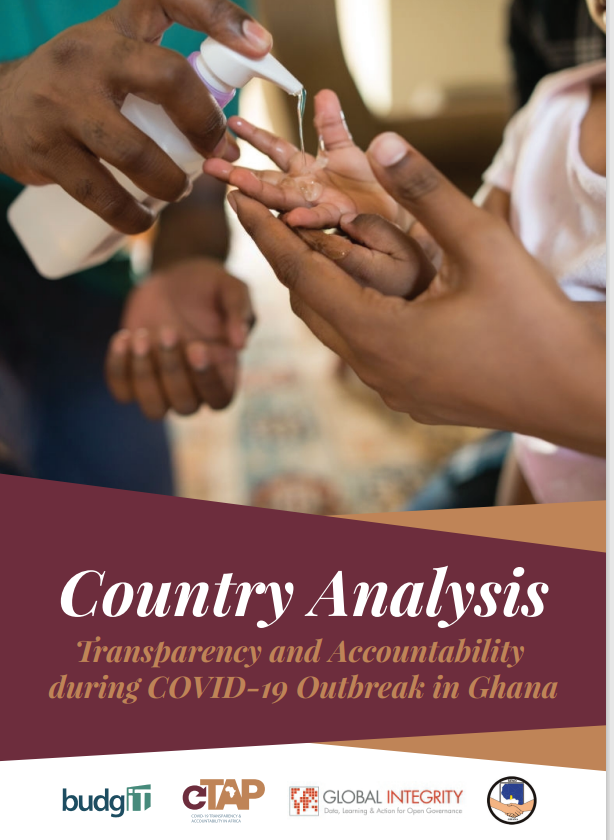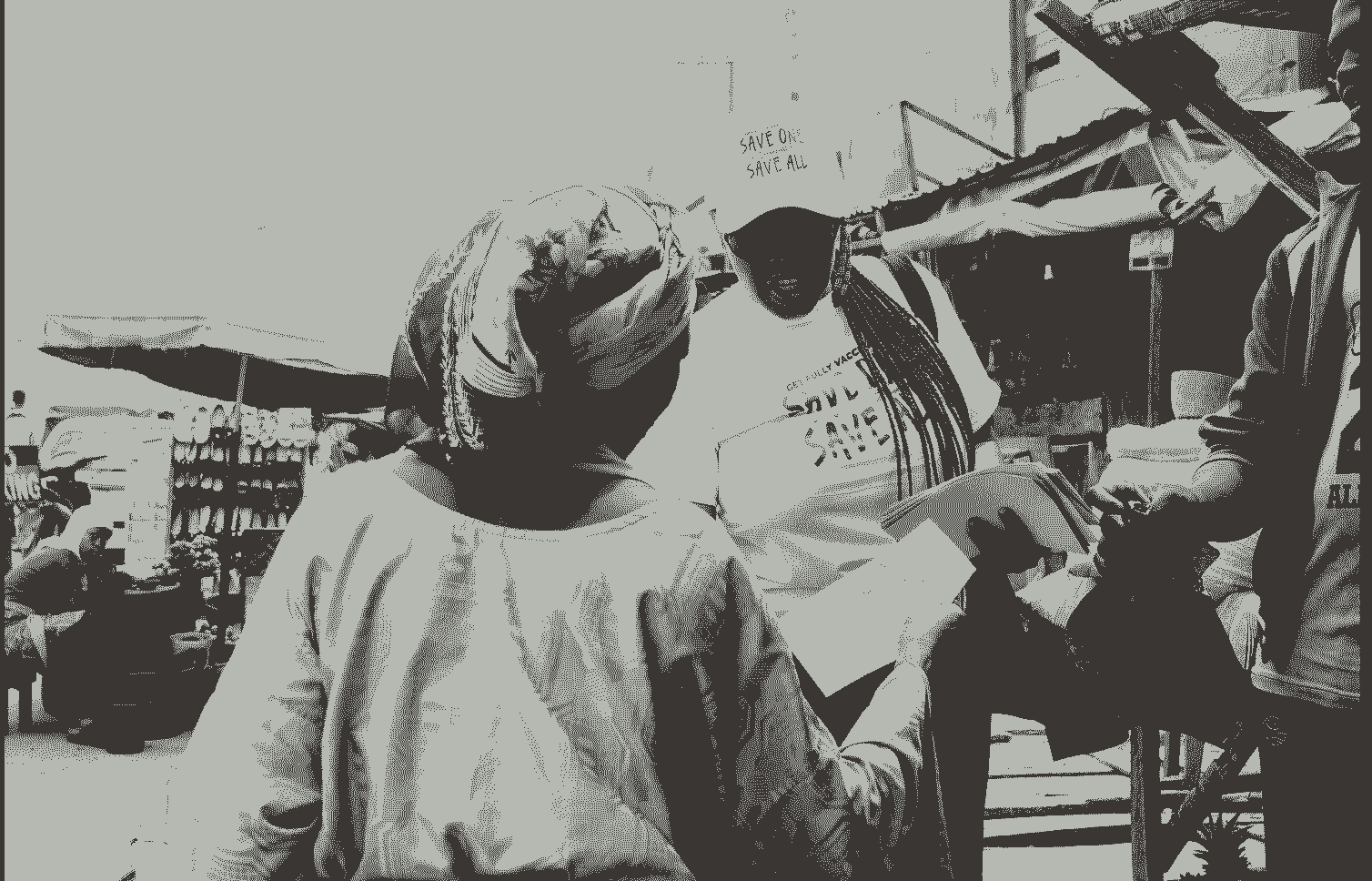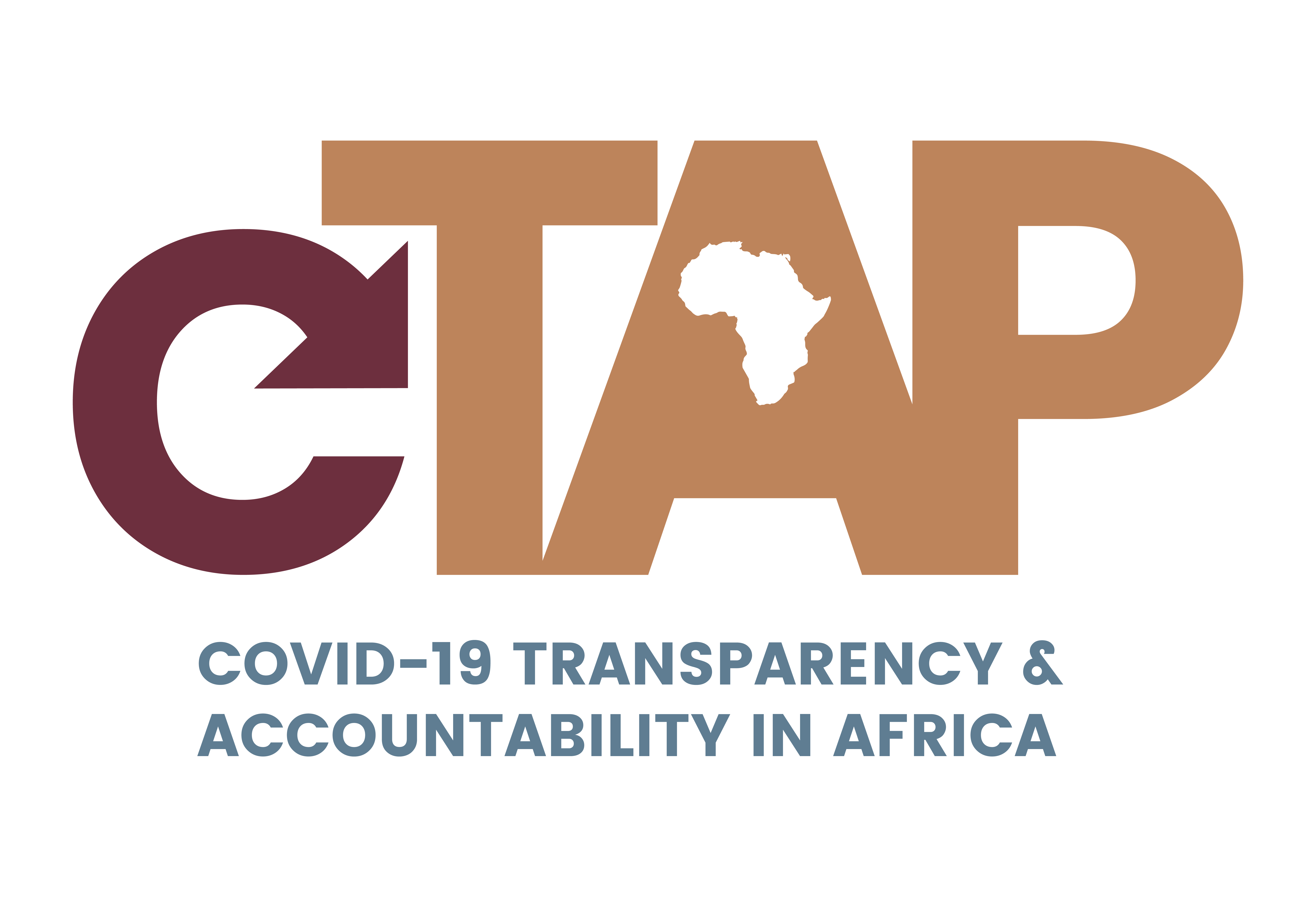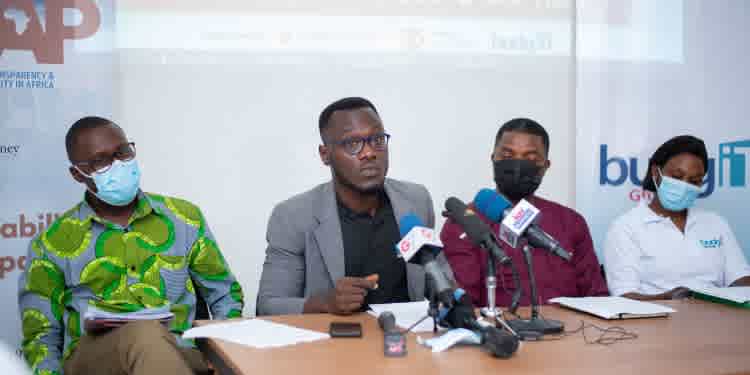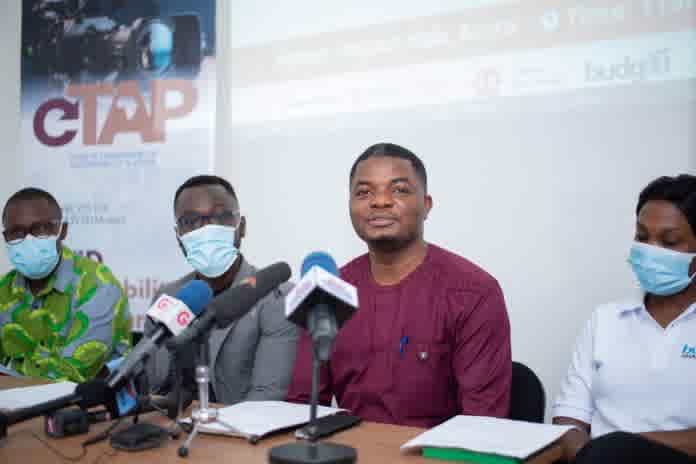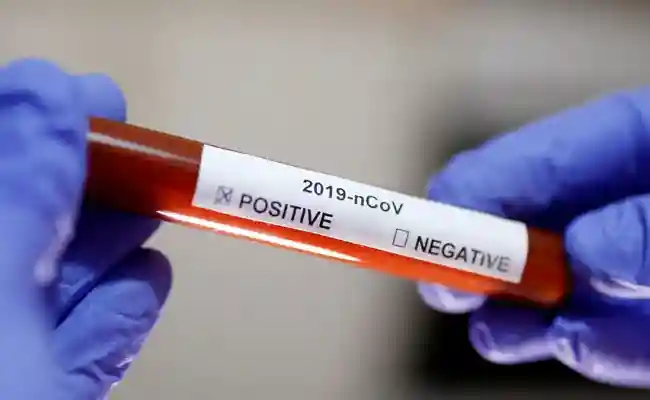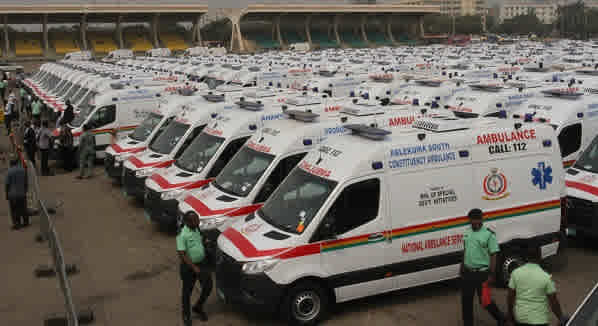Key Numbers
Ghana
170,894
Total Cases
216
Active Cases
169,218
Recovered Cases
1,460
Total Deaths
$104B+
Total Resources Committed
$63.4M
In-Kind Support
31M+
Country Population
60.82%
Doses per 100 People
11.84M+ (35%)
Fully vaccinated
CTAP Country Report
Download the CTAP COVID-19 Resources Spreadsheet for Africa
The CTAP COVID-19 financial report is the guide to donations by public, private and multilateral organizations towards the COVID-19 pandemic relief in Africa. It provides detailed information on how much countries across the continent received, funding sources, s, the type of donation, what the donations are meant for, categories and total amount. Dive into our comprehensive datasets on COVID-19 resources for Africa.
Infographics
Publications
Updates
Information on this site is provided on an “as is” and “as available” basis. CTAP makes every effort to ensure but does not guarantee, the accuracy or completeness of the information on The CTAP website. Our goal is to keep this information timely and accurate. If errors are brought to our attention, we will try to correct them. CTAP may add, change, improve, or update the information on the website without notice. CTAP reserves its exclusive right in its sole discretion to alter, limit or discontinue part of this site. Under no circumstances shall CTAP be liable for any loss, damage, liability or expense suffered which is claimed to result from the use of this site, including without limitation, any fault, error, omission, interruption or delay. Use of this site is at the User’s sole risk. We make every effort to minimize disruption caused by technical errors.
However, some data or information on the CTAP website may have been created or structured in files or formats which are not error-free and we cannot guarantee that our service will not be interrupted or otherwise affected by such problems. CTAP accepts no responsibility with regard to such problems (failure of performance, computer virus, communication line failure, alteration of content, etc.) incurred as a result of using the CTAP website or any link to external sites. The User specifically acknowledges and agrees that CTAP is not liable for any conduct of any other User, including, but not limited to, the types of conduct listed above. CTAP reserves the right to deny at its sole discretion any User access to the CTAP website or any portion thereof without notice.
For site security purposes and to ensure that the CTAP website remains available to all users, it employs software programs to monitor network traffic to identify unauthorised attempts to upload or change information, or otherwise cause damage and to detect other possible security breaches.

